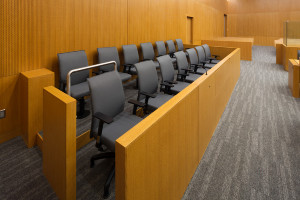Defendants Have Rights
When people are arrested, the police are legally obligated to read them their rights, offer a phone call, and allow access to legal aid. Even if the police actively saw the crime in progress or the suspect confessed to the crime, the suspect is always offered the right to have an attorney present when they are interrogated. If a suspect is not able to afford a private attorney, then the police are obligated to provide access to a public defender.

During the Arrest
After the suspect is arrested, he or she is allowed to talk to their lawyer privately without the police present. During this time, the criminal defense attorney will interview their client to help determine weaknesses and strengths in the defense and the prosecutor’s case against the suspect. After this, the attorney can investigate to see if there is any evidence and witnesses who can help support the client’s defense.

During the Investigation
The defense attorney will inspect the evidence and interview the witnesses that the police and prosecution have gathered in order to see if there are any gaps in their case. If necessary, the defense attorney might also bring in an expert from an independent laboratory to examine the evidence to see if there are any details that could be used in the case and possibly even testify in court on the behalf of the client suspect.

Jury Selection
One of the most important parts of preparing for a court case is jury selection. During this process, both of the attorneys for the defense and prosecution choose from a pool of prospective candidates to be a part of the jury during a court trial. Both sides can have the prospective jurors removed if they believe that they might be prejudiced for one side of the case or another. Once the jury is in place, the trial can begin.
It's All Settled in Court
A court case is the moment in which all of the defense attorney’s work is tested. The questioning of the client, the strategizing of the defense, the investigation into the evidence and the witnesses, and finally the jury selection, all come to fruition at the day in court. By cross-examining witnesses, presenting evidence, and talking to the jury, the defense attorney can argue for their client’s innocence and give them their day in court.
